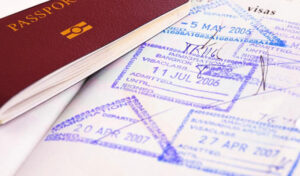A prenuptial agreement is a legally binding contract entered into by a couple before their marriage, outlining the terms of property ownership and financial arrangements during and after the marriage. In Thailand, prenuptial agreements are governed by the Civil and Commercial Code (CCC) and are recognized as a vital tool for asset protection and dispute prevention. This article explores the legal framework, benefits, and essential considerations for drafting a prenuptial agreement in Thailand.
Legal Framework Governing Prenuptial Agreements in Thailand
1. Recognition Under Thai Law
Prenuptial agreements are explicitly recognized under Section 1465 of the Thai Civil and Commercial Code. The agreement must primarily address property and financial matters. Provisions unrelated to financial arrangements, such as personal obligations or future custody rights, may not be enforceable under Thai law.
2. Registration Requirement
A prenuptial agreement must be registered with the Thailand marriage at the local district office (Amphur) to be legally valid. Failure to register the agreement at the time of marriage will render it unenforceable in the event of a dispute.
3. Mutual Consent and Fairness
The agreement must be entered into voluntarily by both parties. Coercion, fraud, or duress during the drafting or signing of the agreement can render it void. Additionally, the terms of the agreement must be fair and not contrary to public policy.
Why Draft a Prenuptial Agreement in Thailand?
1. Asset Protection
A prenuptial agreement allows each party to specify which assets will remain as personal property, protecting them from being divided as marital property in the event of a divorce.
2. Clarity on Financial Responsibilities
The agreement can outline how financial matters will be managed during the marriage, reducing potential conflicts over money.
3. Protection for Foreign Nationals
Foreign nationals marrying in Thailand often choose to draft prenuptial agreements to protect their overseas assets or address differences in legal systems.
4. Efficient Divorce Proceedings
In the event of a divorce, a prenuptial agreement can simplify the division of assets, saving time, money, and emotional stress.
Key Components of a Prenuptial Agreement
- Identification of Parties
- Full names and identification details of both parties.
- Clear statement of intent to marry.
- List of Assets and Liabilities
- Detailed inventory of each party’s personal property, assets, and liabilities.
- Clear designation of which assets will remain personal property.
- Property Division
- Specification of how marital property will be divided in the event of a divorce.
- Debt Allocation
- Agreement on how existing and future debts will be handled.
- Business Ownership
- Provisions to protect business interests, particularly for entrepreneurs.
- Conflict Resolution Clause
- Agreement on the jurisdiction and method of dispute resolution, such as mediation or arbitration, in case of disagreements.
Drafting Process for a Prenuptial Agreement
1. Initial Consultation
Both parties should consult with independent legal counsel to ensure their rights and interests are protected. This step is particularly important for foreign nationals unfamiliar with Thai law.
2. Negotiation
Open communication between the parties is crucial to agree on fair and equitable terms. Each party must fully disclose their assets and liabilities during this stage.
3. Drafting the Agreement
The agreement should be drafted in both Thai and English (or another relevant language) to ensure mutual understanding. It must be concise, clear, and comply with Thai legal standards.
4. Review by Legal Professionals
Each party’s legal representative should review the agreement to confirm its enforceability and fairness.
5. Signing and Witnessing
Both parties must sign the agreement in the presence of witnesses. If either party is a foreign national, they may need a certified translation of the agreement.
6. Registration with the Marriage
The prenuptial agreement must be registered at the Amphur when the couple registers their marriage.
Enforceability of Prenuptial Agreements in Thailand
1. Voluntary Agreement
The agreement must be entered into voluntarily, with no evidence of coercion or undue influence.
2. Full Disclosure
Both parties must provide full and accurate disclosure of their financial circumstances.
3. Compliance with Public Policy
The terms must not violate Thai public policy or be deemed unfair by the court.
4. Proper Registration
The agreement must be properly registered at the time of marriage to be enforceable.
Challenges and How to Address Them
1. Cultural Differences
- Cultural attitudes toward prenuptial agreements can vary, particularly in mixed-nationality marriages.
- Solution: Open and respectful discussions can help both parties understand the benefits of the agreement.
2. Language Barriers
- Legal terminology can be challenging for non-native speakers.
- Solution: Use a professional translator and seek bilingual legal counsel.
3. Lack of Full Disclosure
- Failing to disclose all assets can invalidate the agreement.
- Solution: Ensure full transparency during negotiations.
Tips for a Successful Prenuptial Agreement
- Start Early: Begin the process well in advance of the wedding to allow for thorough negotiations.
- Hire Experienced Lawyers: Engage legal professionals familiar with Thai and international family law.
- Be Transparent: Both parties should be open about their financial circumstances.
- Focus on Fairness: Ensure the terms are equitable to both parties to reduce the likelihood of future disputes.
- Avoid Emotional Decisions: Treat the agreement as a pragmatic tool rather than a reflection of trust or commitment.
Role of Legal Professionals
Legal professionals play a vital role in ensuring the prenuptial agreement complies with Thai law and protects both parties’ interests. Their services may include:
- Advising on legal and cultural considerations.
- Drafting and reviewing the agreement.
- Assisting with registration at the Amphur.
Conclusion
A prenuptial agreement in Thailand offers couples a proactive way to address financial and property-related issues before marriage, ensuring clarity and fairness in their relationship. By understanding the legal requirements, drafting process, and importance of professional assistance, couples can create an agreement that protects their assets and reduces potential conflicts. Whether you are a Thai national or a foreigner, a well-drafted prenuptial agreement provides peace of mind and sets the foundation for a stable and harmonious marital relationship.










